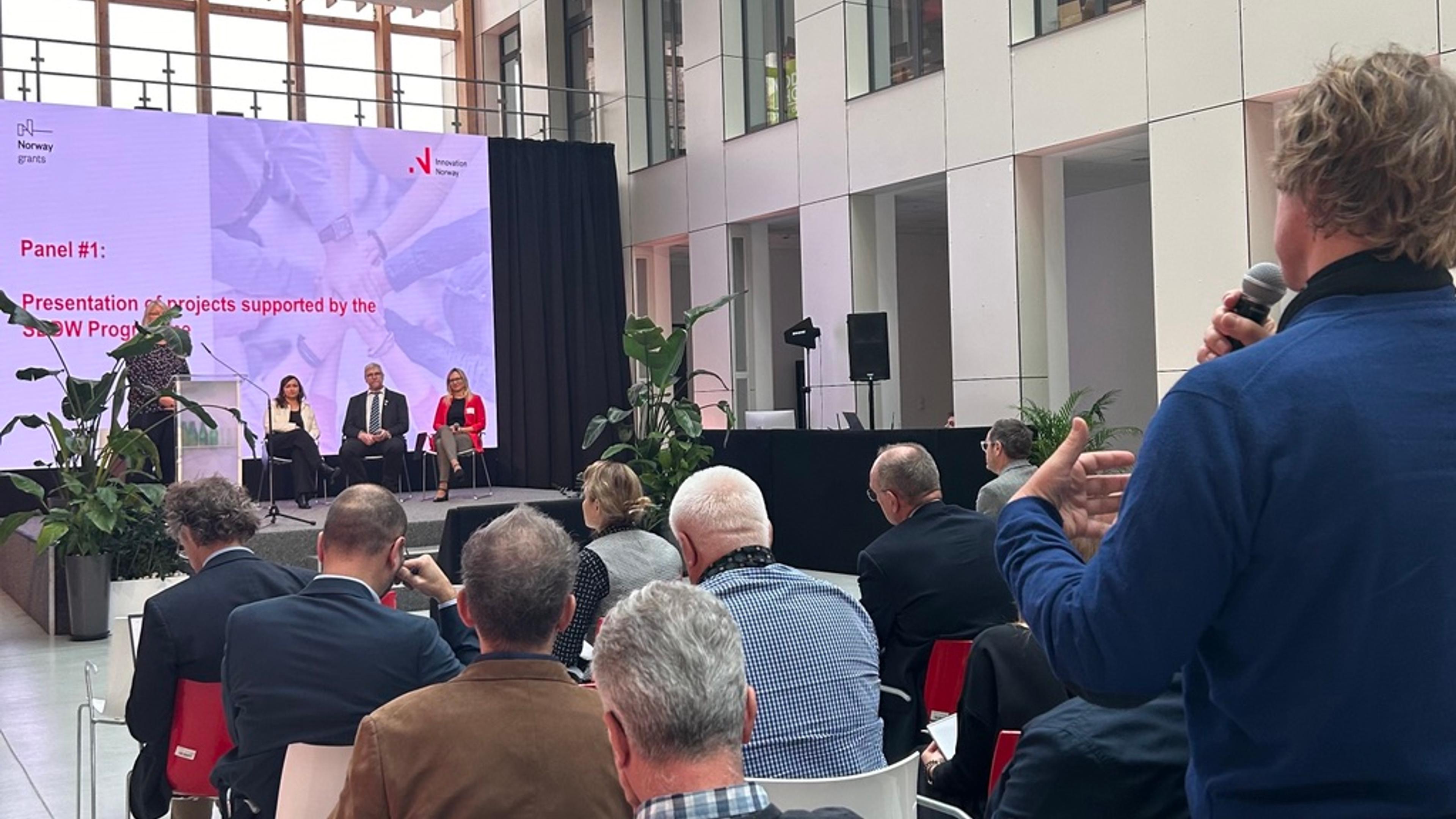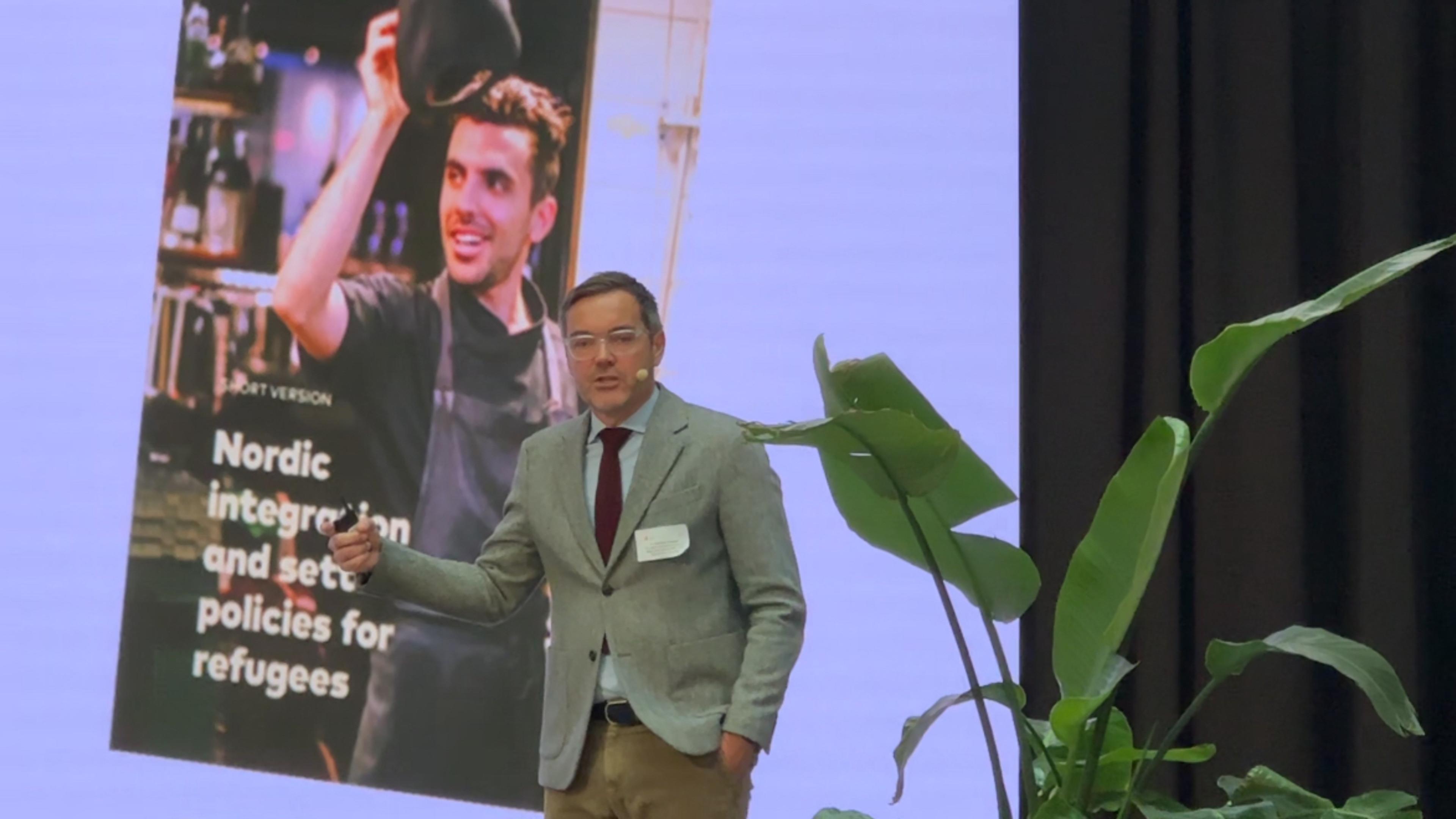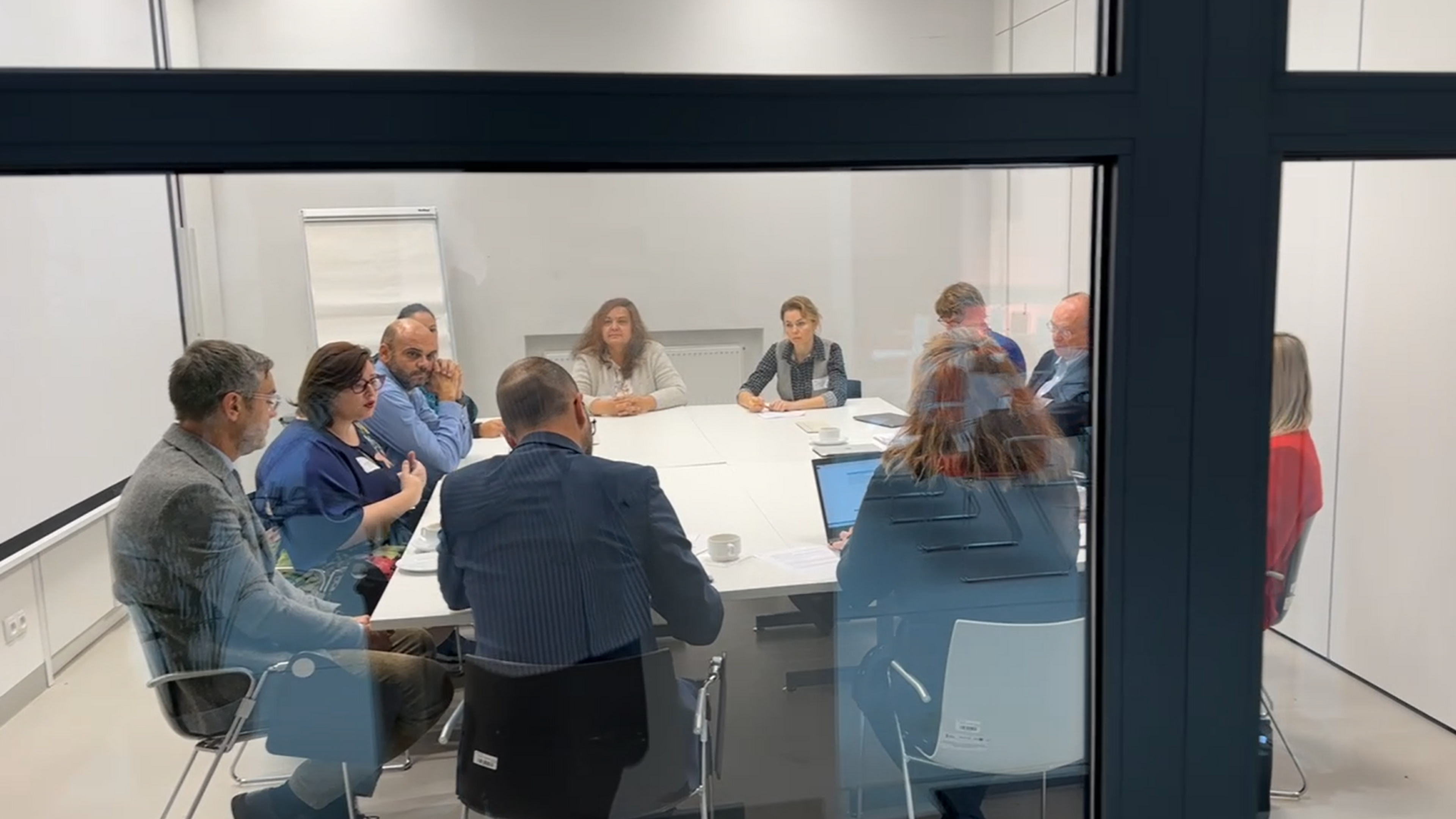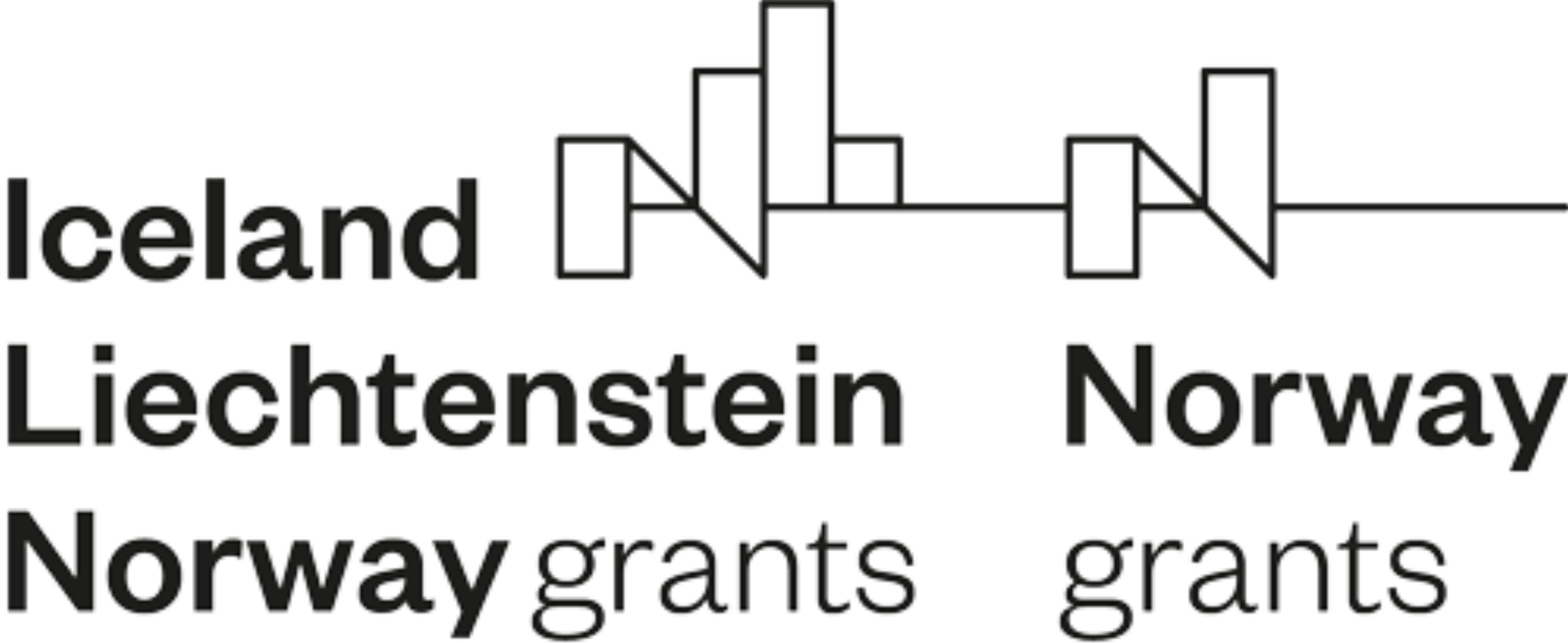Networking Seminar: The Role of Social Partners in the Integration of Migrants and Refugees into the Labour Market
 © Innovation Norway
© Innovation NorwayThe event gathered around 40 participants from eight countries to share knowledge and lessons learned from projects within the Progamme on an increasingly important topic. The idea of the seminar was triggered by the fact that many European countries have massive inflow of Ukrainian refugees since the Russian invasion, as well as migrants from various parts of the world.
«We need joint efforts between public authorities and social partners in tackling this situation and ensuring a good integration of the refugees and migrants in the labour market.»
Joint Efforts Needed
The seminar brought together representatives from social partners and relevant public authorities to discuss challenges and solutions for labour market integration of refugees and migrants. The seminar served as an arena to reflect on how social partners can contribute to a successful integration, both directly as organisations but also in cooperation with relevant authorities.
Deputy Ambassador, Bjørn Erik Brustad, opened the seminar and underlined that labour market integration of refugees and migrants is a top priority in all EU and EEA countries, and that the SDDW Programme creates valuable meeting places across countries to discuss and enhance the role of social partners in this regard.
 © Innovation Norway
© Innovation NorwayKristian Rose Tronstad from the Department of International Studies and migration at the Norwegian Institute for Urban and Regional Research, gave an overview of the current situation of refugees and migrants in Europe, with a particular focus on the experience with labour market integration of refugees in the Nordic countries, both from earlier waves and the current wave of refugees from Ukraine.
Project Highlights
The Social Dialogue and Decent Work Programme has supported a number of projects targeting migrants, and since 2022 social partners in Poland and the Czech Republic are implementing several projects aiming at facilitating the integration of Ukrainian refugees into the labour market.
Two of the projects supported were presented at the seminar. Katarzyna Duda, from the All-Poland Poland Alliance of Trade Unions, presented the SIDA project which aims at securing decent work and rights for Ukrainian refugees, and to build the capacity of social partners to contribute to the joint efforts to tackle the challenging refugee situation in Poland. Kristyna Strnadova from the Association of Small and Medium-sized Enterprises and Crafts of the Czech Republic, shared results from the ROSE project which offers training to Ukrainian refugees in starting their own business. Pål Lund from the Norwegian Labour Inspection Authority presented the campaign ‘Know your rights’ which raises the awareness of migrants and refugees on their rights and obligations as workers.
«Through our study visit to Norway, we were very impressed by the strong cooperation between social partners. Poland has a lot to learn from Norway on the cooperation between social partners, to strengthen the social dialogue and the positive effects that comes with it.»
Challenges and Solutions, and what Role for the Social Partners
 © Innovation Norway
© Innovation NorwayThe second part of the seminar included working groups where participants discussed challenges and solutions related to: skills and qualifications, decent work and rights, and capacity-building of social partners.
Agnieszka Rybczyńska, who moderated the group discussing capacity building of social partners, highlighted one of their findings in the discussion:
«Employers must be patient, especially taking into account the fact that a lot of the refugees are going through a trauma fleeing their country. »
«Colleagues from several EU countries had very interesting insight on how to contribute to a more decent labour market, in addition to work life balance. We know that a lot of the refugees from Ukraine are women with children, and the labour market is an important arena to integrate the refugees. We also need to see labour market integration in relation to other parts of society, such as childcare, health care and housing. »
Working Together: The Importance of Tripartite Cooperation
Bilateral cooperation and partnerships with Norwegian social partners and authorities is an important objective of the Social Dialogue and Decent Work Programme, especially exchange of best practices on tripartite social dialogue. The second panel discussed what the role social partners should take in cooperation with public authorities to facilitate labour market integration and ensure decent work for migrants and refugees. Yanina Unnli from the Norwegian Confederation of Trade Unions (LO) and Henrik Munthe from the Confederation of Norwegian Enterprise (NHO), presented the Norwegian model for social dialogue and tripartite cooperation, and they explained how social partners had been involved, both during earlier refugee waves and the current situation with Ukrainians, underlining also the need for bipartite cooperation between employers and trade unions. Katarzyna Duda from All-Poland Poland Alliance of Trade Unions, commented on the situation in Poland, where currently there are close to one million Ukrainian refugees, mainly women, children and elderly. Daiva Macijauske from the Lithuanian Confederation of Industrialist presented the situation in Lithuania, which is one of the countries with the highest number of refugees compared to the size of the population. While the other panellist represented cross-sectoral organisations, Alexandra Cornea from Free Trade Unions Federation in Education Romania, presented the situation from the perspective of the education sector, which has been heavily affected by the high inflow of children and youth from Ukraine.
About the Social Dialogue and Decent Work Programme
The Social Dialogue and Decent Work Programme aims at supporting capacity-building of social partners and strengthen the tripartite social dialogue in the 12 Beneficiary States. The Programme focuses on promoting decent work, and the role of social partners in facilitating access to employment.
